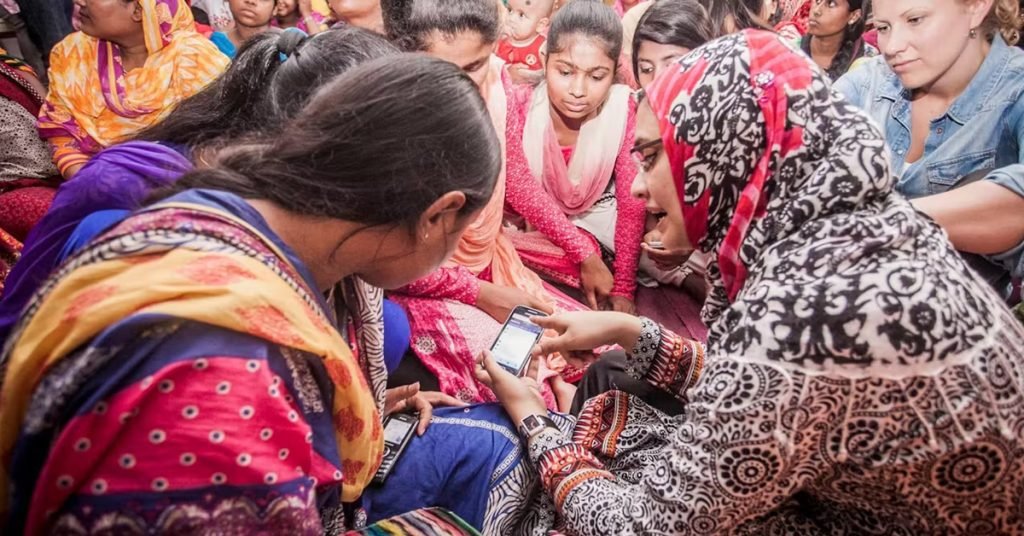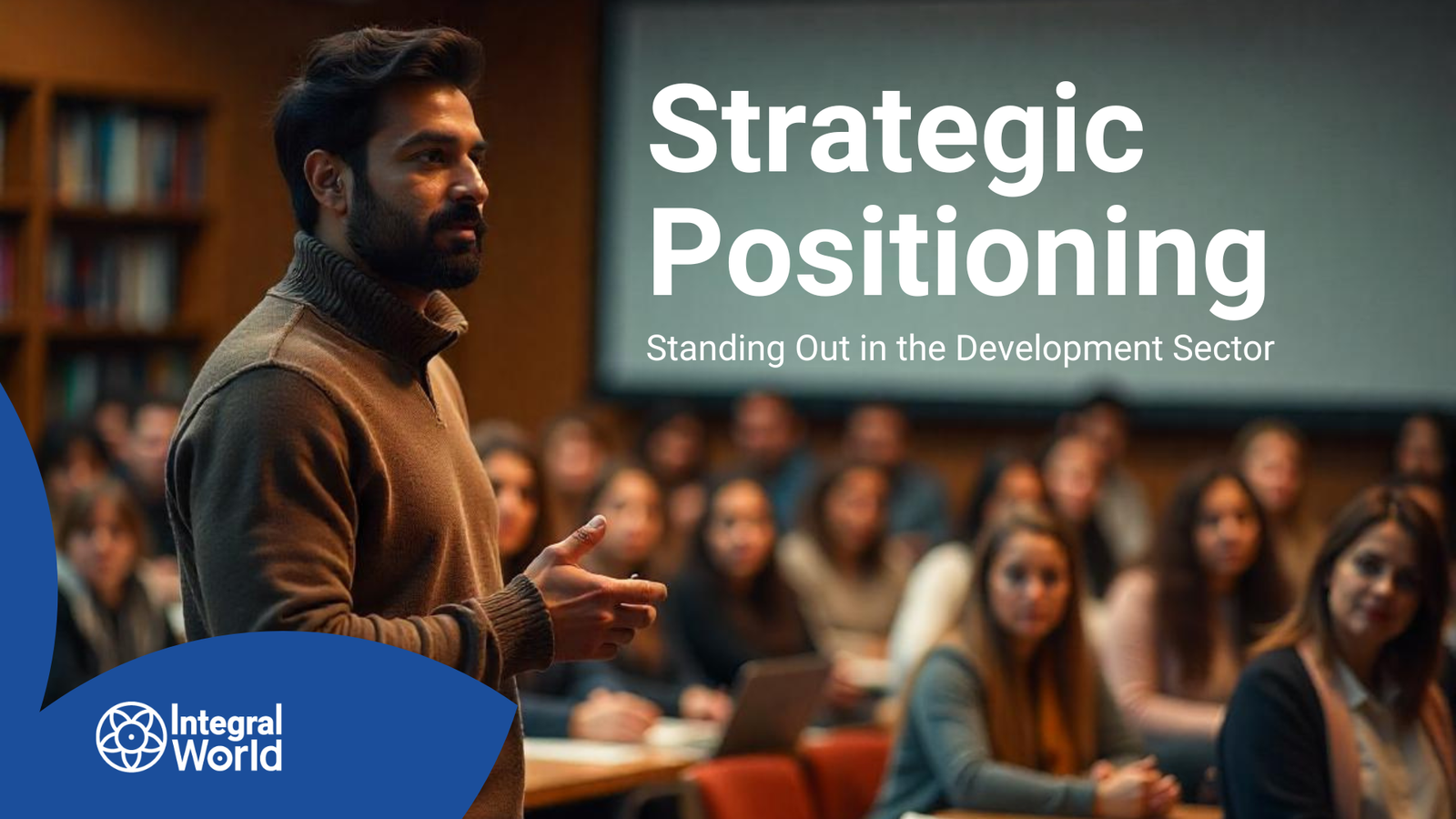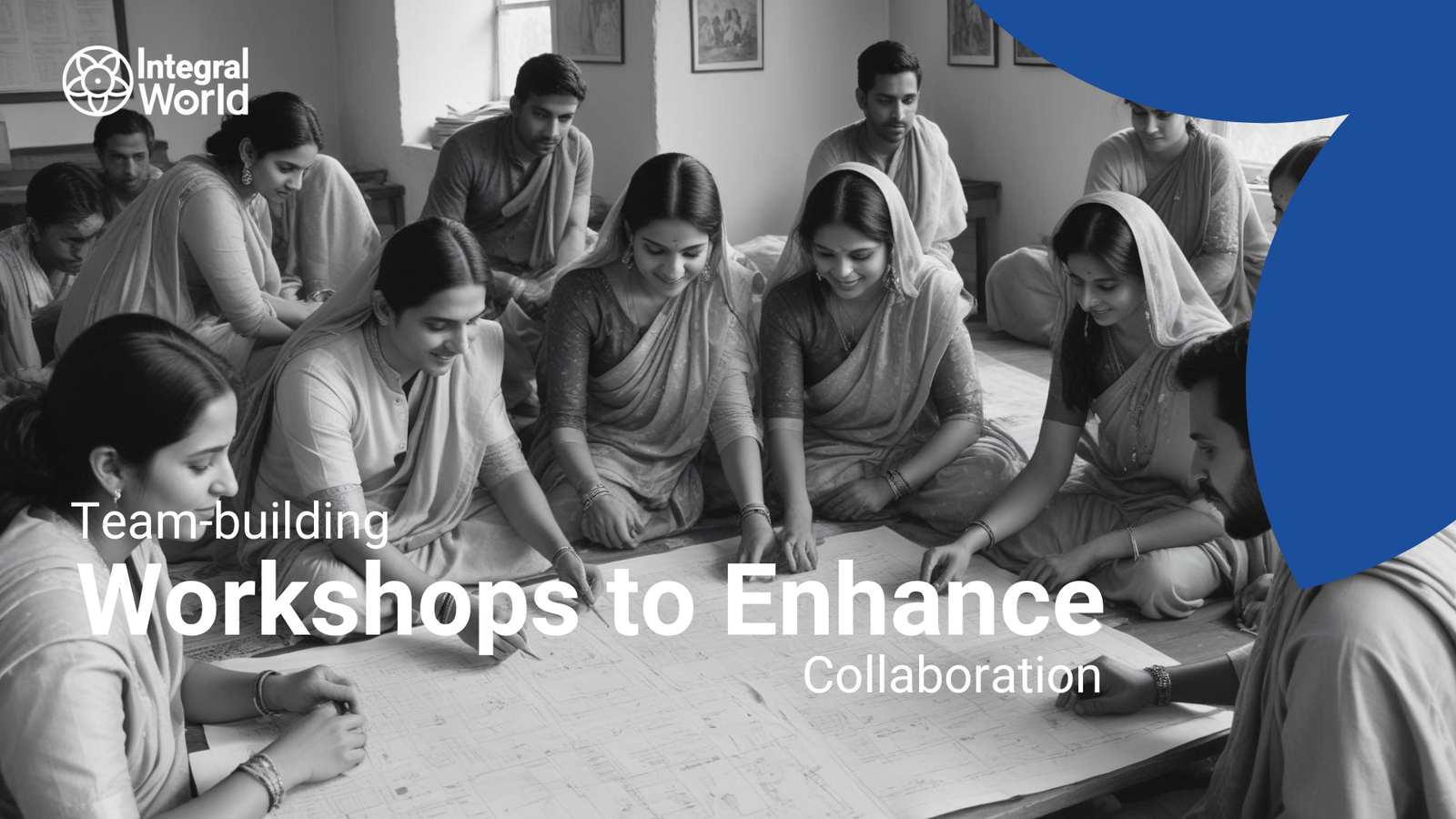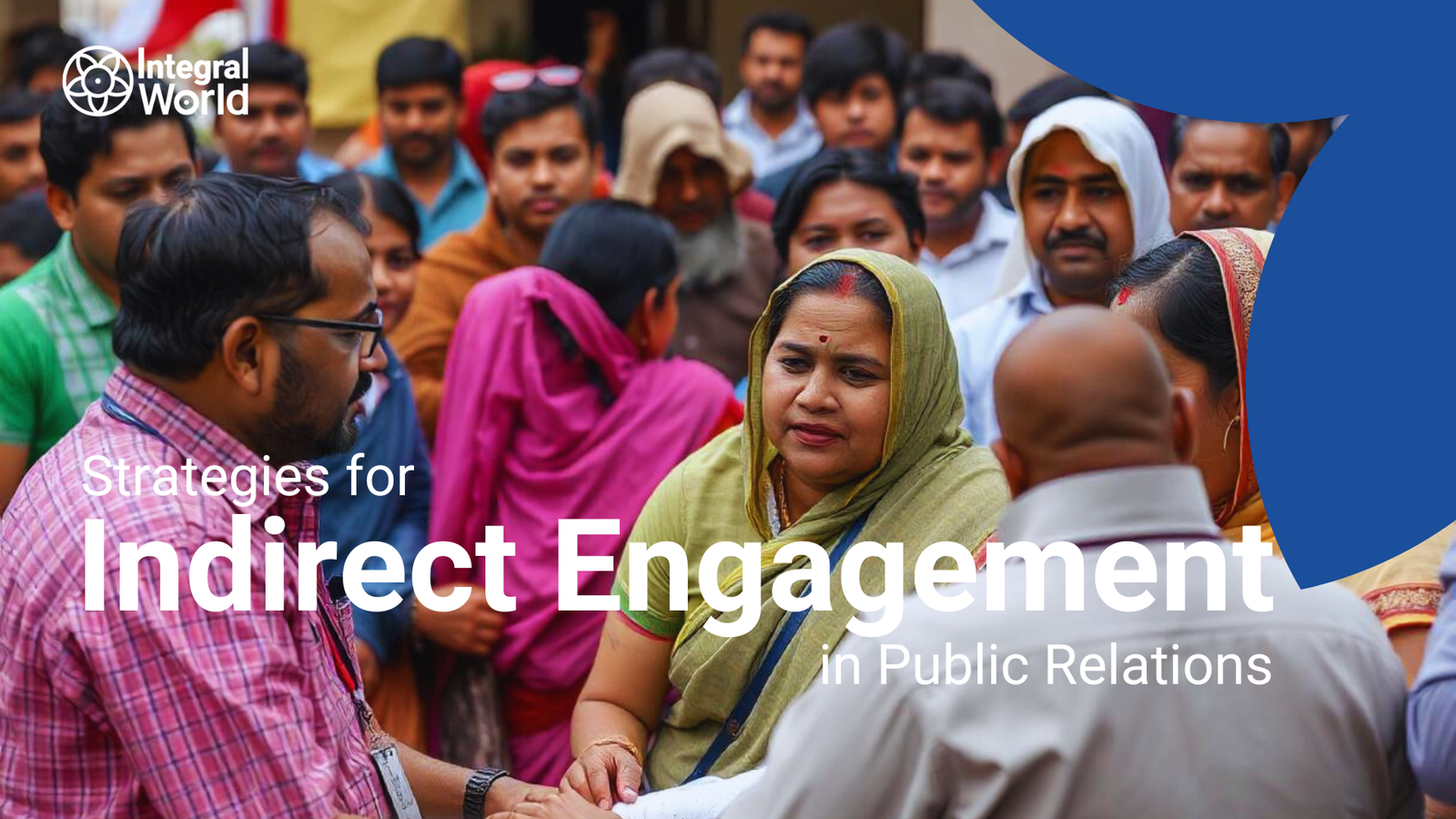Innovative fundraising products can set nonprofits apart, attracting donor attention and fostering meaningful engagement. Integral World explores top trends, expert insights, and actionable strategies to help organizations develop products that elevate funding and advance sustainable development goals
Continue readingUtilizing Multimedia for Educational Purposes
This article explores the role of multimedia in enhancing education, featuring expert insights, data-driven predictions, and practical tips. Integral World supports organizations in effectively integrating multimedia to enrich learning experiences and improve training outcomes in today’s digital landscape.
Continue readingDocumenting Success Stories and Testimonials
Storytelling is a powerful tool for sustainable development. By documenting success stories and testimonials, Integral World can build trust, enhance credibility, and foster stakeholder engagement, showcasing their impact while staying ahead of emerging trends in this vital area.
Continue readingMaintaining an Effective Website for Development Organizations
Integral World empowers development organizations to build impactful websites that resonate with donors, partners, and beneficiaries. By integrating sustainability trends and expert insights, we guide organizations to maintain a strong online presence and achieve their strategic goals effectively.
Continue readingStrategic Positioning – Standing Out in the Development Sector
Strategic positioning is essential for organizations like Integral World to drive sustainable development. Through targeted workshops and training, this NGO strengthens communities, overcomes resource challenges, and aligns activities to a clear value proposition in the competitive development sector.
Continue readingTeam-building Workshops to Enhance Collaboration
Team-building is key to sustainable development. Learn emerging trends and expert advice from Integral World to stay ahead and achieve goals.
Continue readingLeveraging Cause-Related Marketing for Greater Social Impact
Cause Related Marketing (CRM) is an inventive strategy where businesses and nonprofits combine their efforts to achieve win-win situations by merging marketing objectives with social good. For enterprises in the sector of sustainable development, making use of CRM can greatly magnify their social impact as well as enhance attention and participation.
The article examines emerging tendencies in the sustainable development arena, shows how organisations can remain afloat through these changes and introduces Integral World which guides companies through this process.
The Emergence of Cause-Related Marketing
Cause-related marketing moved from being a novelty to a mainstream approach. Companies now understand that they need to align their brands with social causes so as to build more profound relationships with consumers, develop brand loyalty and contribute towards positive changes in society.
Cause-Related Marketing Trends
Highly Demanded CSR by Customers
Consumers increasingly make decisions based on what will be best for society when it comes to corporate responsibility. According to a Cone Communications study 87% of customers are willing to buy products just because the company was advocating the related issue that mattered for them while 76% may not purchase from organisations supporting the cause against their beliefs.
Integration of Sustainable Development Goals (SDGs)
Businesses are increasingly linking their CRMs campaigns with United Nations’ Sustainable Development Goals (SDGs) which further amplifies its social impact among stakeholders who value sustainability.
Data-Driven Marketing Strategies
The use of data analytics in cause-related marketing allows organisations to measure the impact of their campaigns accurately, understand consumer behaviour, and optimise their strategies for greater effectiveness.
Staying Ahead of the Curve in Sustainable Development
So that organisations can effectively leverage Cause Related Marketing, they need to stay ahead of trends within sustainable development.

Here are some key trends and strategies:
Embrace Innovation and Technology
Technological advancements are driving innovation in sustainable development. It means that today technology plays a key role in increasing social impact starting from blockchain for supply chain transparency or artificial intelligence for resource optimization.
Build and Maintain Strategic Partnerships
Creating strategic partnerships with like-minded organisations can amplify impact and drive sustainable development. The business-nonprofit-government alliances create synergy which deals better with intricate social problems.
Transparency Matters
Transparency is an important factor in building trust with stakeholders. Organisations must be clear about what they are trying to achieve, how they are trying to do it, and what the results have been so far.
Community Engagement
Successful initiatives on sustainable development are based on active participation of locals where empowerment is also a key element. Involving communities in decision-making processes ensures that projects remain culturally relevant over time.
Expert Insights on Cause-Related Marketing and Sustainable Development
Industry insiders highlight the significance of being genuine, having strategic consistency, and committing oneself to cause-related marketing plus sustainable development over a long period.
Authenticity is Key
For cause-related marketing to be authentic implies genuinely embracing a cause rather than using it as a marketing ploy. Customers can easily distinguish between authenticity while genuine efforts often build trust more effectively until loyalty becomes part of the brand culture.
Expert Opinion: According to Jane Doe who is renowned in corporate social responsibility, “Authenticity is crucial in cause-related marketing; consumers want real commitment and tangible impact rather than just marketing fluff.”
Align with Core Business Values
Successful cause-related marketing activities go hand in hand with the company’s core values and mission. In this regard, it is important to ensure coherence in messaging.
Expert Opinion: For example, according to John Smith who works as a sustainability consultant, “When cause-related marketing aligns with a company’s core values, it creates a powerful synergy that resonates with stakeholders and drives long-term success.”
Long-Term Commitment
Short-term campaigns may generate temporary buzz, but long term commitment is necessary for sustainable impact. Organisations should concentrate on establishing enduring partnerships and initiatives that promote ongoing improvement.
Expert Opinion: According to Emily Johnson of development sector experts, “For meaningful and lasting impact, social causes require long term commitment. It calls for dedication, resources and ability to change along with changing times”.

Practical tips on how to do Cause-Related Marketing
For organisations that wish to employ cause-related marketing for a greater social impact, here are some practical steps:
Find Causes That Matter
Choose causes that your company’s mission, values and target market can relate to. Look into the needs and preferences of your stakeholders so as to choose what they will be interested in.
Set Objectives
Have clear objectives for your cause-related marketing campaign that can be measured easily. These goals should be in line with both your marketing goals and the desired social impact.
Make Your Campaigns Superb
Develop innovative campaigns that resonate with your audience while encouraging action. Use narrative techniques, visuals, interactive content among others which leave behind an indelible memory of your campaign.
Collaborate with Influencers
Partner with influencers who have similar interests so they can push your message farther. With their help you will reach out to a wider audience thus enhancing credibility in your campaign.
Monitoring and evaluation
Monitor progress of campaign periodically using data analysis to track key performance indicators (KPIs) make necessary changes so as to optimise impact.
Integral World’s Role in Guiding Organizations
Integral World is committed to helping organisations leverage cause-related marketing for greater social impact. Our areas of expertise in sustainable development, strategic partnerships, and community engagement make us a reliable guide for organisations who wish to be on the cutting edge.
Our Approach:
- Strategic Guidance: we provide specialist consulting on cause selection, objectives setting as well as campaign creation.
- Partnership Development: We help companies cultivate relationships with like-minded partners to scale up impact.
- Community Engagement: We underscore the value of community-driven approaches; hence empowering local stakeholders to actively engage in development initiatives.
- Monitoring and Evaluation: We offer tools and know-how to track progress of campaigns so as to improve them continuously while ensuring long-term effects are achieved.
Conclusion
When it comes to making a bigger mark through this CSR avenue, organisations must do it strategically from the heart. To realise maximum social welfare returns while effecting meaningful change, organisations should look out for trends in sustainable development that are emerging, build links with strategic partners perfectly aligned with their objectives, transparency and engaged communities.
However, at Integral World we aim at guiding you through these trends by providing insight and assistance necessary for achieving success in an evolving area of sustainable growth. Together let’s build a healthier world that is fit for all.
Get involved today and support the Integral World in our mission to promote sustainable development through new-fashioned cause-related marketing. Click on our website for more information about what we do and find ways of working with us on this. In unity, we will multiply our efforts to make a real change.
Strategies for Indirect Engagement in Public Relations
In the framework of sustainable development and social impact, effective public relations is crucial for engaging communities and driving meaningful change. Although direct engagement is largely highlighted, indirect strategies may also play a major role in establishing relationships, building trust as well as dealing with key development issues.
In the case of Integral World which stands out in identifying solutions to development problems, mastering public relations indirect engagement can be instrumental in magnifying their influence.
The article therefore highlights how organisations can identify and address development issues by understanding community needs, provides a step-by-step guide on indirect engagement strategies, includes examples of cases as well as expert insights.
Understanding Community Needs
The basis of any successful public relations whether direct or indirect is the deep knowledge about targeted communities. It implies not only understanding their needs but also challenges faced by them, aspirations that they have and cultural contexts within which they exist.
Key Steps to Understanding Community Needs:
Conduct Comprehensive Research:
- Surveys and Interviews: Use surveys or interviews to collect quantitative and qualitative data about what people need.
- Focus Groups: Organise focus groups for detailed discussions and insightful understanding.
- Ethnographic Studies: Use ethnographic studies to recognize cultural contexts from the viewpoint of the community itself.
Engage Local Stakeholders:
- Community Leaders: Establish partnerships with influential local leaders who are knowledgeable enough to give good advice.
- Local Organisations: Collaborate with local non-governmental organisations (NGOs) or community-based organisations (CBOs) that possess necessary capacities or extensive networks.
- Public Forums: Engaging all interested parties into debates during public forums or town hall meetings will help you do away with this obstacle.
Analyze Data and Identify Patterns:
- Data Analysis: Through analysing collected data you can reveal common themes as well as pressing issues.
- Needs Assessment Reports: This summarises findings in compiled needs assessment reports whose results should inform strategic planning processes.
Indirect Engagement Strategies in Public Relations
Indirect engagement strategies are subtle yet powerful tools for building relationships and trust without direct interaction. These involve the use of media, influencers, and community-driven platforms to make a positive impact.

Leverage Media Relations:
- Media relations entail establishing and maintaining contact with journalists, editors as well as media houses to secure some coverage that draws attention to your organisation’s mission and initiatives.
- Press Releases: Draft press releases carrying interesting news updates, success stories as well as impact accounts by the charity or NGO in question.
- Media Kits: Constructing comprehensive media kits that contain basic details about your organisation, major projects as well as expert spokespeople.
- Op-Eds and Articles: Writing op-eds or articles meant for local or national publications is an effective way of sharing how your organisation thinks about development problems and their solutions.
Collaborate with Influencers:
- Influencer collaborations refer to working with individuals who have massive following on social networks including Instagram, Facebook, Twitter among others thus impacting positively on people who follow their pages thereby spreading the message of your organisation wide.
- Identify Relevant Influencers: Find ones whose values match those of your organisation and audience too.
- Co-Create Content: The collaboration may result in joint production of adverts which highlights what is being done by these organisations within the communities where they serve them for instance through webinars.
- Ambassador Programs: Organise ambassador programs where select few individuals will be charged with responsibilities such as writing reviews or introducing new products online rather than just telling people about them; however it should be noted here that we should not remove this part because the argument is still not complete until we give our view concerning it although we were never asked to do so by the one who developed the topic.
Case Study: UNICEF and Celebrity Ambassadors
UNICEF has successfully engaged celebrities and influencers as goodwill ambassadors to promote its campaigns. Using their fame, these good will ambassadors are able to bring awareness about and raise support for UNICEF’s activities worldwide.
Utilise social media:
- Social media platforms present a potent opportunity for indirect involvement in the activities of organisations which enables them to both reach and engage with their customers.
- Content Strategy: Develop some educational posts, success stories as well as calls to action while creating a content strategy.
- User-Generated Content: Motivate citizenry to contribute by providing the public with their stories and experiences regarding your initiatives.
- Social Media Campaigns: Unveil social media marketing campaigns that would increase consciousness about an issue and encourage interaction.
Case Study: The ALS Ice Bucket Challenge
The ALS Ice Bucket Challenge is one instance where social media has been used for indirect engagement. Involving user-generated content and wider participation on social networking sites, this campaign went viral raising awareness about ALS and funds for research on it.
Engage through Community Platforms:
- Indirect engagement can be done through community platforms such as local forums, online communities and community radio stations.
- Local Forums: Participate in local forums in order to share updates, ask questions or discuss about development issues
- Online Communities: Find online communities related to your cause, join and contribute valuable insights, resources etc.
- Community Radio: Utilise this platform to broadcast stories, interviews or educational materials targeting the local population.

Case Study: Community Radio in India
Community radios have played a major role in promoting social development as well as community participation within India. These organisations use these platforms to disseminate information, share success stories and engage members of the community into discussion. Expert Insights on Indirect Engagement
1. Brian Solis who is also a digital analyst insists upon building relationships via indirect engagement “Engagement is personal connection. It is knowing what interests your audience wants; what they need; how do they behave? It’s using that knowledge then using that knowledge then acting upon it.”
2. Richard Edelman, the CEO of Edelman focuses on the trust aspect of indirect engagement “Trust is our number one equity. Organisations that want to build trust must be open, consistent and true to their mission. When the principles are aligned with indirect engagement then it does magic in terms of credibility and impact.”
Conclusion
Indirect engagement strategies are essential tools for organisations like Integral World to build relationships, foster trust, and address key development issues effectively. By deeply understanding the needs of the communities they serve and leveraging media relations, influencer collaborations, social media, and community platforms, organisations can amplify their impact and drive sustainable development.
Ready to enhance your public relations strategy with effective indirect engagement techniques? Visit www.IntegralWorld.org to learn how we can support your organisation in building strong community relationships and achieving sustainable development goals through innovative PR strategies.




